This article explores the guidelines and recommendations regarding water consumption while fasting for blood tests, addressing common questions and providing insights into the importance of fasting protocols.
Understanding Fasting for Blood Tests
Fasting for blood tests is essential for ensuring accurate results. Fasting typically means refraining from eating or drinking anything except water for a specified period before the test. This practice is necessary for certain medical tests to eliminate variables that could skew the results.
Why Is Fasting Important?
Fasting is crucial because it helps standardize the conditions under which blood is drawn. Many substances in food and beverages can interfere with the measurements of various biomarkers. For instance, consuming food can elevate blood sugar and lipid levels, leading to misleading results.
Types of Blood Tests Requiring Fasting
- Glucose Testing: Fasting is vital for accurate glucose measurements, especially for diabetes screening.
- Lipid Panel Tests: These tests assess cholesterol levels, and fasting helps ensure that triglyceride levels are not artificially elevated.
- Comprehensive Metabolic Panel: This test evaluates various metabolic functions and requires fasting for precise results.
General Fasting Guidelines
Most fasting protocols recommend abstaining from food and drink for at least 8 to 12 hours prior to the test. However, it’s essential to follow the specific instructions provided by your healthcare provider, as some tests may have unique requirements.
Can You Drink Water While Fasting?
A common question is whether water intake is allowed during fasting. Generally, drinking water is permitted and even encouraged as it helps maintain hydration without affecting test results. Staying hydrated can make it easier for healthcare professionals to draw blood.
Benefits of Drinking Water
Staying hydrated before a blood test offers several benefits:
- Improved blood circulation, making venipuncture easier.
- Reduced likelihood of feeling faint or dizzy during the test.
- Assistance in flushing out toxins, which can provide a clearer picture of health markers.
Potential Risks of Drinking Water
While water is generally allowed, there are exceptions. For specific tests, such as those measuring electrolyte levels, excessive water intake might dilute the results. Always consult your healthcare provider if you’re unsure.
Expert Recommendations on Water Intake
Healthcare professionals often suggest drinking a moderate amount of water before fasting blood tests. This advice aims to ensure that patients remain hydrated while still adhering to fasting requirements. It is advisable to avoid sugary drinks, coffee, or tea, as these can influence test outcomes.
Common Misconceptions About Fasting
There are numerous myths regarding fasting for blood tests. One prevalent misconception is that all liquids are prohibited. In reality, plain water is typically acceptable. Another myth is that fasting only applies to specific tests, whereas many tests benefit from fasting to ensure accuracy.
Preparing for Your Blood Test
Preparation is key to successful blood testing. Here are some practical tips:
- Follow your healthcare provider’s fasting instructions carefully.
- Stay hydrated by drinking water, unless otherwise advised.
- Avoid strenuous exercise the day before the test, as it can affect results.
The Importance of Following Guidelines
Adhering to fasting guidelines is vital for obtaining accurate blood test results. Proper preparation not only enhances the reliability of the tests but also contributes to better health outcomes. Always consult with your healthcare provider for personalized advice and follow their instructions closely.

Understanding Fasting for Blood Tests
is essential for patients to ensure accurate and reliable results. Fasting refers to the practice of abstaining from food and, in some cases, beverages for a specified period before undergoing medical testing. This process is particularly important for certain blood tests, as it helps eliminate variables that could skew the results.
When healthcare providers recommend fasting, they typically mean refraining from all food and caloric beverages for a designated time, which can range from 8 to 12 hours. During this period, the body undergoes metabolic changes that stabilize blood components, making it easier to obtain precise measurements of various substances in the bloodstream.
Why is fasting necessary? The primary reason for fasting prior to blood tests is to achieve a baseline state in the body. When food is consumed, it can affect the levels of glucose, cholesterol, and other substances in the blood. For instance, after eating, blood sugar levels rise, which can lead to misleading results, especially in tests designed to assess conditions like diabetes. By fasting, patients help ensure that their test results reflect their true physiological state.
Types of Blood Tests Requiring Fasting
- Glucose Testing: Fasting is crucial for accurate glucose measurements. Elevated glucose levels can indicate diabetes or prediabetes. A fasting blood glucose test provides a clearer picture of how well the body regulates sugar.
- Lipid Panel Tests: These tests measure cholesterol levels, including LDL, HDL, and triglycerides. Fasting can lead to more consistent lipid profiles, essential for assessing cardiovascular health.
- Other Tests: Certain hormone tests and metabolic panels may also require fasting to ensure accuracy.
Understanding the specific requirements for each test is vital. Patients should always consult their healthcare provider for detailed instructions regarding fasting protocols.
General Fasting Guidelines
Patients are typically advised to fast for at least 8 hours before a blood test. However, it is essential to clarify any specific instructions with a healthcare professional, as some tests may have different fasting requirements. For example, tests assessing liver function may not require fasting at all.
Can You Drink Water While Fasting? A common question during the fasting period is whether water can be consumed. In most cases, drinking water is encouraged as it helps maintain hydration without interfering with test results. Staying hydrated can facilitate blood draws, making the process smoother for both patients and healthcare providers.
Benefits of Drinking Water
- Prevents dehydration, which can affect blood volume and lead to difficulties during blood collection.
- Helps in maintaining overall bodily functions, even while fasting.
Potential Risks of Drinking Water
While water is generally safe to consume, patients should be aware of specific scenarios where it might not be advisable. For example, if a healthcare provider instructs against any fluid intake for a particular test, it’s crucial to adhere to those guidelines.
In conclusion, understanding the importance of fasting for blood tests is vital for ensuring accurate medical evaluations. By following the recommended fasting protocols and consulting with healthcare professionals, patients can contribute to more reliable health assessments.
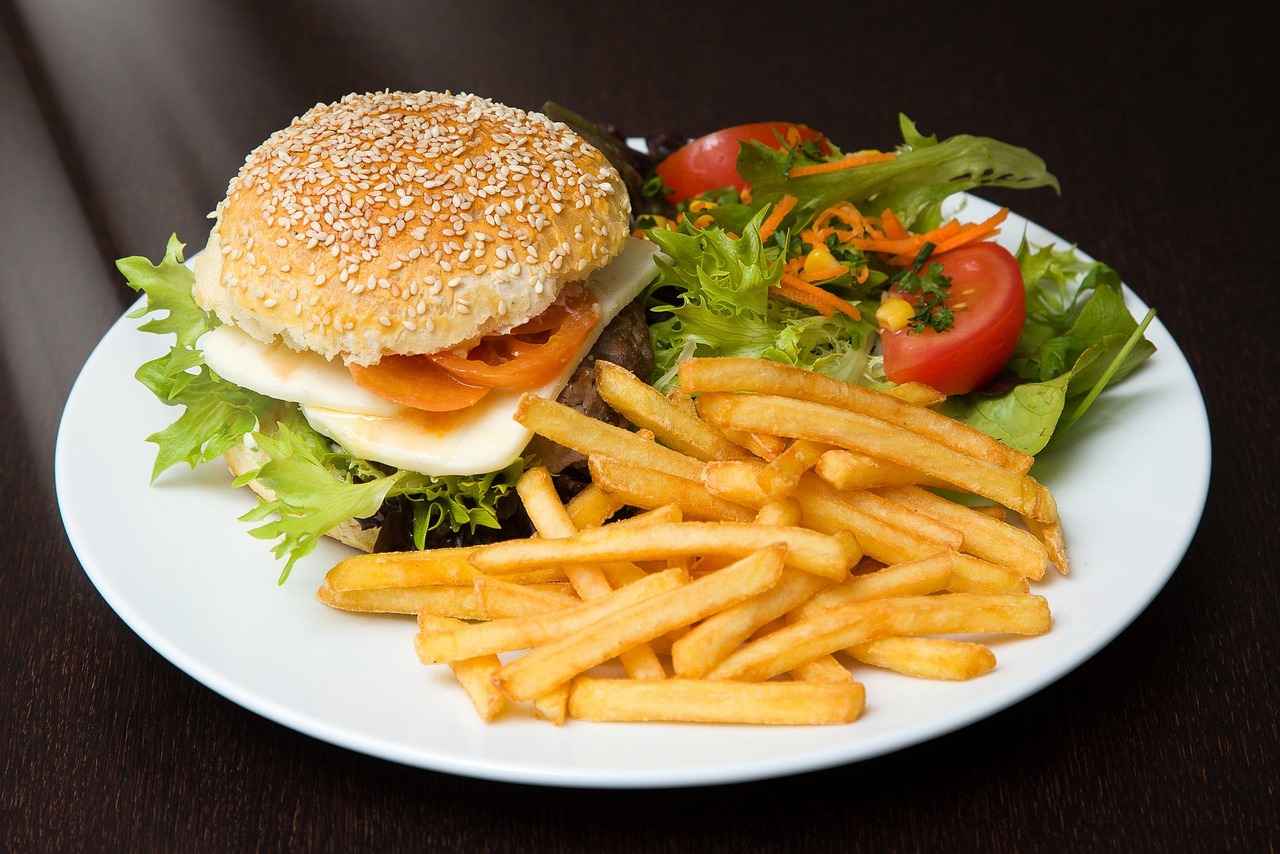
Why Is Fasting Important?
Fasting plays a crucial role in ensuring the accuracy and reliability of blood test results. By abstaining from food and certain beverages for a specified period, patients can help eliminate various factors that may interfere with the readings. This article delves into the significance of fasting, its impact on blood test outcomes, and why it is a necessary step for many medical evaluations.
When we eat, our bodies undergo a series of metabolic processes that can alter the composition of our blood. For instance, the consumption of food can lead to temporary spikes in glucose and lipid levels, which may skew the results of tests designed to assess these parameters. As such, fasting is not merely a suggestion; it is a vital part of the preparation for specific blood tests.
Fasting helps in the following ways:
- Elimination of Variability: By refraining from food intake, patients can minimize fluctuations in blood parameters caused by recent meals.
- Standardization of Results: Fasting provides a consistent baseline, allowing healthcare providers to compare results more accurately across different patients.
- Improved Diagnostic Accuracy: Certain tests, such as those measuring glucose and cholesterol levels, require fasting to yield reliable results that reflect a patient’s true health status.
Understanding the importance of fasting becomes even clearer when considering specific types of blood tests. For instance, a glucose test measures the amount of sugar in the blood. If a patient eats before the test, their blood sugar levels may be artificially elevated, leading to a misdiagnosis of conditions like diabetes. Similarly, a lipid panel assesses cholesterol levels, which can also be influenced by recent food intake. Fasting helps ensure that these levels reflect the patient’s typical state rather than a temporary spike due to a meal.
Moreover, fasting is not a one-size-fits-all approach. Different tests have varying fasting requirements. For example, while some tests may require a fasting period of 8-12 hours, others might only need a shorter duration. Understanding these nuances is essential for patients to prepare adequately and receive accurate test results.
In addition to eliminating variables, fasting also encourages patients to engage more actively in their health management. By following fasting protocols, patients become more aware of their dietary habits and how these habits can affect their overall health. This awareness can lead to healthier lifestyle choices in the long run.
In conclusion, fasting is a critical component of preparing for blood tests. It not only enhances the accuracy of test results but also fosters a deeper understanding of personal health. By adhering to fasting guidelines, patients can contribute significantly to their healthcare journey, ensuring that the information gathered from blood tests is reliable and actionable.
Types of Blood Tests Requiring Fasting
When it comes to blood tests, fasting is a crucial step that can significantly impact the accuracy of the results. Different blood tests have specific requirements, and understanding which tests necessitate fasting—and why—is essential for patients preparing for these procedures. This section outlines the types of tests that typically require fasting and the underlying reasons for these protocols.
- Glucose Testing: This test is vital for diagnosing and managing diabetes. Fasting is important because it provides a baseline measurement of blood sugar levels. When you eat, your blood glucose levels rise, which can lead to misleading results. A fasting period of at least 8 hours is typically recommended to ensure accurate readings.
- Lipid Panel Tests: These tests measure cholesterol levels and triglycerides in the blood. Fasting for 9 to 12 hours before the test is generally advised, as food intake can temporarily elevate triglyceride levels, skewing the results. Accurate lipid profiles are essential for assessing cardiovascular health and determining the risk of heart disease.
- Comprehensive Metabolic Panel (CMP): This panel includes tests for glucose, electrolytes, kidney, and liver function. Fasting is crucial here as it helps in getting precise measurements of glucose and other substances that can be influenced by recent food intake.
- Iron Tests: Fasting is often required for tests measuring iron levels in the blood. Food can affect the absorption of iron, leading to inaccurate results. A fasting period of at least 12 hours is usually recommended to ensure reliable readings.
- Vitamin B12 and Folate Tests: Fasting may be required for these tests as well, especially if you are being tested for deficiencies. Food intake can influence the absorption of these vitamins, potentially leading to misleading results.
Understanding the rationale behind fasting for these tests is essential. Fasting helps eliminate variables that could affect blood test results, ensuring that healthcare providers can make informed decisions based on accurate data. It is always advisable to follow the specific instructions given by your healthcare provider regarding fasting to ensure the best outcomes for your health.
In conclusion, knowing which blood tests require fasting and the reasons behind these protocols can empower patients to prepare adequately. Always consult with your healthcare provider for personalized advice and guidelines.
Glucose Testing
is a critical procedure for assessing blood sugar levels, particularly in the context of diagnosing diabetes and other metabolic disorders. Understanding the role of fasting in this process is essential for obtaining accurate results. Fasting, in this context, refers to abstaining from all food and beverages, except for water, for a specified period prior to the test. This practice is crucial because it helps to eliminate fluctuations in blood sugar levels that can occur after eating.
When a patient undergoes a glucose test, the primary goal is to measure the concentration of glucose in the bloodstream. If a patient eats or drinks anything other than water before the test, it can lead to elevated blood sugar readings, which may result in an incorrect diagnosis. For instance, consuming carbohydrates can spike glucose levels, potentially indicating diabetes when the patient is actually healthy.
Fasting is particularly important for two types of glucose tests: the fasting blood glucose test and the oral glucose tolerance test (OGTT). The fasting blood glucose test requires at least 8 hours of fasting, while the OGTT typically requires 8 to 12 hours of fasting. During these fasting periods, the body has the opportunity to stabilize its glucose levels, providing a clearer picture of how well the body regulates blood sugar.
Moreover, fasting allows healthcare professionals to establish a baseline for glucose levels. This baseline is essential for comparing subsequent readings and determining how the body processes sugar over time. In patients with diabetes, consistent monitoring of fasting glucose levels can help in managing their condition effectively.
It is also important to note that fasting is not only beneficial for glucose testing but can also improve the accuracy of other blood tests, such as lipid panels. When patients adhere to fasting protocols, it reduces the chances of misleading results that could lead to unnecessary treatments or interventions.
In addition to its role in diagnostics, fasting can also serve as a valuable tool for individuals looking to manage their blood sugar levels. Research has shown that intermittent fasting can improve insulin sensitivity and help in weight management, which are crucial factors in preventing and managing diabetes.
However, it is essential for patients to follow their healthcare provider’s instructions regarding fasting. Some individuals may have specific medical conditions that require modifications to standard fasting guidelines. For instance, those with certain metabolic disorders or pregnant women may need tailored advice to ensure their safety and well-being during fasting.
In conclusion, fasting is a vital component of glucose testing that significantly impacts the accuracy of blood sugar measurements. By adhering to fasting protocols, patients can help ensure reliable results that aid in the diagnosis and management of diabetes and other related conditions. Always consult with a healthcare professional for personalized guidance on fasting and blood testing to achieve the best possible health outcomes.
Lipid Panel Tests
are essential diagnostic tools used to measure cholesterol levels in the blood. These tests provide crucial information about an individual’s lipid profile, which includes various forms of cholesterol and triglycerides. Understanding the impact of fasting on these tests is vital for obtaining accurate results and assessing cardiovascular health.
Fasting before a lipid panel test is generally recommended to ensure that the results reflect your baseline cholesterol levels. When you eat, your body processes food, leading to temporary increases in triglyceride levels. These fluctuations can skew the results, making it difficult for healthcare providers to assess your true cardiovascular risk.
Typically, fasting for 9 to 12 hours is advised before undergoing a lipid panel test. During this period, individuals are usually allowed to consume water, which helps maintain hydration without affecting lipid levels. It is crucial to follow your healthcare provider’s instructions regarding the fasting duration, as variations may exist based on specific testing protocols.
Many patients wonder if they can drink water while fasting for a lipid panel test. The good news is that water is generally permitted and encouraged during the fasting period. Staying hydrated can facilitate blood draws and may even help in achieving a more accurate reading by diluting the blood slightly, which can improve the reliability of the test.
Research indicates that fasting can significantly affect lipid profiles. For instance, fasting can lead to lower triglyceride levels and more stable measurements of low-density lipoprotein (LDL) and high-density lipoprotein (HDL) cholesterol. These metrics are critical for evaluating heart disease risk and making informed treatment decisions.
Not fasting before a lipid panel test may result in misleading results. Elevated triglyceride levels can falsely indicate a higher risk of cardiovascular disease, potentially leading to unnecessary treatments or lifestyle changes. Thus, adhering to fasting guidelines is essential for accurate health assessments.
- Myth: Fasting is unnecessary for lipid tests.
- Fact: Fasting is critical for accurate cholesterol readings.
- Myth: You cannot drink anything at all while fasting.
- Fact: Water is permissible and beneficial during fasting.
Healthcare professionals emphasize the importance of following fasting guidelines for lipid panel tests. They recommend scheduling tests in the morning, allowing for an overnight fast. This timing not only aligns with fasting requirements but also reduces the likelihood of dietary influences affecting the results.
To prepare effectively for a lipid panel test, consider the following tips:
- Schedule your test for the morning after an overnight fast.
- Stay hydrated by drinking water before the test.
- Avoid alcohol and fatty foods for at least 24 hours prior.
- Consult with your healthcare provider about any medications you are taking.
In conclusion, understanding the significance of fasting before a lipid panel test is crucial for optimal cardiovascular health assessments. By adhering to fasting guidelines and recognizing the role of hydration, patients can ensure that their test results are as accurate as possible, leading to better health outcomes.
General Fasting Guidelines
are essential for patients preparing for blood tests. Fasting is not just a simple act of abstaining from food; it plays a critical role in ensuring the accuracy of test results. This section outlines the duration of fasting required and highlights any exceptions that may apply.
Typically, fasting for blood tests means refraining from all food and beverages, except for water, for a specific period. The general recommendation is to fast for 8 to 12 hours prior to the test. However, the exact duration can vary depending on the type of test being conducted. For instance, glucose tests may require a shorter fasting period compared to lipid panels.
- 8 hours: Commonly required for tests like glucose and certain metabolic panels.
- 12 hours: Often necessary for lipid panel tests to ensure accurate cholesterol readings.
It is important to note that there are exceptions to fasting guidelines. In some cases, patients may be instructed by their healthcare provider to fast for a shorter or longer duration based on their individual health needs. For example, patients with diabetes may have different fasting requirements to avoid hypoglycemia.
Moreover, hydration is a critical component during the fasting period. While solid food must be avoided, drinking water is usually encouraged. Staying hydrated can help in the blood draw process, making veins more prominent and easier to access. However, patients should always confirm with their healthcare provider regarding water consumption, as there are specific tests that may require complete abstinence from all liquids.
Another important aspect of fasting guidelines is understanding the potential impact of medications. Patients should discuss their current medications with their healthcare provider to determine if they should continue taking them while fasting. Some medications can affect test results, and adjustments may be necessary.
In summary, following general fasting guidelines is vital for accurate blood test results. Patients should adhere to the recommended fasting periods and consult their healthcare provider about any specific instructions or exceptions. By doing so, they can ensure that their test results are reliable and reflective of their true health status. Understanding these guidelines not only aids in obtaining accurate results but also contributes to effective healthcare management.

Can You Drink Water While Fasting?
When it comes to fasting for blood tests, a frequent inquiry arises: This question is crucial for individuals preparing for medical assessments, as hydration can significantly influence the testing process. In this section, we will delve into the implications of water consumption during fasting and clarify its role in ensuring accurate blood test results.
Fasting typically involves abstaining from food and beverages for a specified period before a blood test. However, water is often treated differently. According to numerous health professionals, it is generally permissible to drink water while fasting. Staying hydrated can actually aid in the blood draw process, making veins more prominent and facilitating easier access for phlebotomy.
- Hydration: Maintaining hydration is essential for overall health. Water helps to keep your body functioning optimally, even during fasting.
- Improved Blood Flow: Adequate hydration can enhance blood circulation, making it easier for healthcare providers to draw blood.
- Reduced Risk of Dizziness: Fasting can sometimes lead to feelings of lightheadedness. Drinking water can help mitigate these symptoms.
While water is typically allowed, there are exceptions based on specific test requirements. For instance, certain metabolic tests may demand complete abstinence from all liquids, including water. Therefore, it is essential to follow the guidelines provided by your healthcare provider.
In most cases, drinking water during fasting is safe; however, there are instances where it may pose risks:
- Contamination Concerns: If water is contaminated or treated with additives, it could potentially interfere with test results.
- Specific Test Requirements: Some tests, particularly those measuring electrolyte levels, may require strict adherence to fasting protocols, including avoiding water.
To ensure that you are following the correct protocols, it’s important to consult with your healthcare provider about any specific instructions related to your blood tests.
Healthcare professionals often advise patients to drink water during fasting unless otherwise specified. This recommendation is supported by studies indicating that hydration does not significantly alter most blood test results. However, always verify with your doctor, as individual circumstances may vary.
There are several misconceptions surrounding the consumption of water during fasting. For example, many people believe that any fluid intake can invalidate the fast. In reality, water is usually seen as a neutral substance that does not interfere with the biochemical markers assessed during blood tests.
In conclusion, staying hydrated by drinking water while fasting for blood tests is generally acceptable and can be beneficial. However, always adhere to specific instructions from your healthcare provider to ensure the accuracy of your test results. By understanding the role of water during fasting, patients can better prepare for their blood tests and contribute to their overall health outcomes.
Benefits of Drinking Water
Staying hydrated is crucial for overall health, and this importance does not diminish when preparing for a blood test. In fact, drinking water can significantly enhance the testing process. This section explores the prior to undergoing blood tests, emphasizing how proper hydration can lead to more accurate results and a smoother experience.
- Improved Blood Flow: Adequate hydration helps to dilute the blood, making it easier for healthcare professionals to draw a sample. This can be particularly beneficial for individuals with smaller veins, as hydration can help veins become more prominent.
- Enhanced Test Accuracy: Certain blood tests, such as those measuring glucose and electrolytes, can yield more reliable results when the body is properly hydrated. Dehydration can lead to concentrated blood samples, which may skew results.
- Reduced Discomfort: Staying hydrated can minimize discomfort during the blood draw. When the body is well-hydrated, the skin and veins are more pliable, leading to a more comfortable experience for the patient.
- Prevention of Fainting: Some individuals may feel lightheaded during or after a blood test, particularly if they are dehydrated. Drinking sufficient water beforehand can help maintain blood volume and reduce the risk of fainting.
- Facilitated Recovery: After a blood draw, it is important to replenish fluids. Drinking water can aid in recovery and help restore the body’s balance, especially if multiple tests are being conducted.
It’s important to note that while water is generally recommended during fasting for blood tests, there are specific guidelines to follow. Patients should consult their healthcare provider to confirm whether they can drink water and how much is appropriate before their particular tests. In most cases, plain water is acceptable, but beverages that contain sugar, caffeine, or other additives should be avoided, as they may interfere with test results.
In summary, drinking water before a blood test offers numerous benefits, including improved blood flow, enhanced accuracy of test results, reduced discomfort, and prevention of fainting. Staying properly hydrated is a simple yet effective way to ensure that blood tests are as accurate and comfortable as possible. Always remember to check with your healthcare provider for personalized advice regarding hydration and fasting protocols.
Potential Risks of Drinking Water
When preparing for a blood test, many individuals wonder about the guidelines for water consumption. While staying hydrated is crucial, there are specific circumstances where drinking water might not be advisable. This section delves into the potential risks associated with water intake during fasting for blood tests, ensuring that patients are well-informed.
Firstly, it is essential to understand that the primary goal of fasting is to achieve accurate blood test results. Drinking water is generally allowed; however, there are exceptions. For instance, certain tests, such as those measuring specific hormones or biochemical markers, may require complete abstinence from any intake, including water. In these cases, even small amounts of water could potentially dilute the blood and skew results.
Another critical aspect is the timing of water consumption. If a patient drinks water too close to the time of the blood draw, it may lead to inaccurate readings. This is particularly true for tests that rely on precise measurements, such as glucose or electrolyte levels. Therefore, it is advisable to adhere to the recommendations provided by healthcare professionals regarding when to stop drinking water.
Moreover, the source of water can also play a role. For instance, flavored or carbonated waters may contain additives or sugars that could interfere with test results. It is best to stick to plain, non-carbonated water to avoid any potential complications.
In some cases, individuals with specific health conditions, such as kidney problems or heart issues, may be advised to limit their fluid intake even more strictly. This is because excessive water consumption could lead to complications, especially if the body is unable to process the fluid efficiently. Therefore, it is crucial for patients to consult their healthcare providers if they have underlying health concerns before deciding on water intake.
Additionally, the psychological aspect of fasting should not be overlooked. Some individuals may feel anxious about their blood test results, leading them to drink more water than necessary in an attempt to ‘flush out’ their system. This behavior can inadvertently affect the accuracy of the test results and should be avoided.
In summary, while water is generally permitted during fasting for blood tests, there are important considerations to keep in mind. Patients should be aware of the specific requirements for their tests, the timing of water consumption, and any health conditions that may necessitate a more cautious approach. Consulting with healthcare professionals for personalized advice is always the best course of action to ensure accurate and reliable test results.
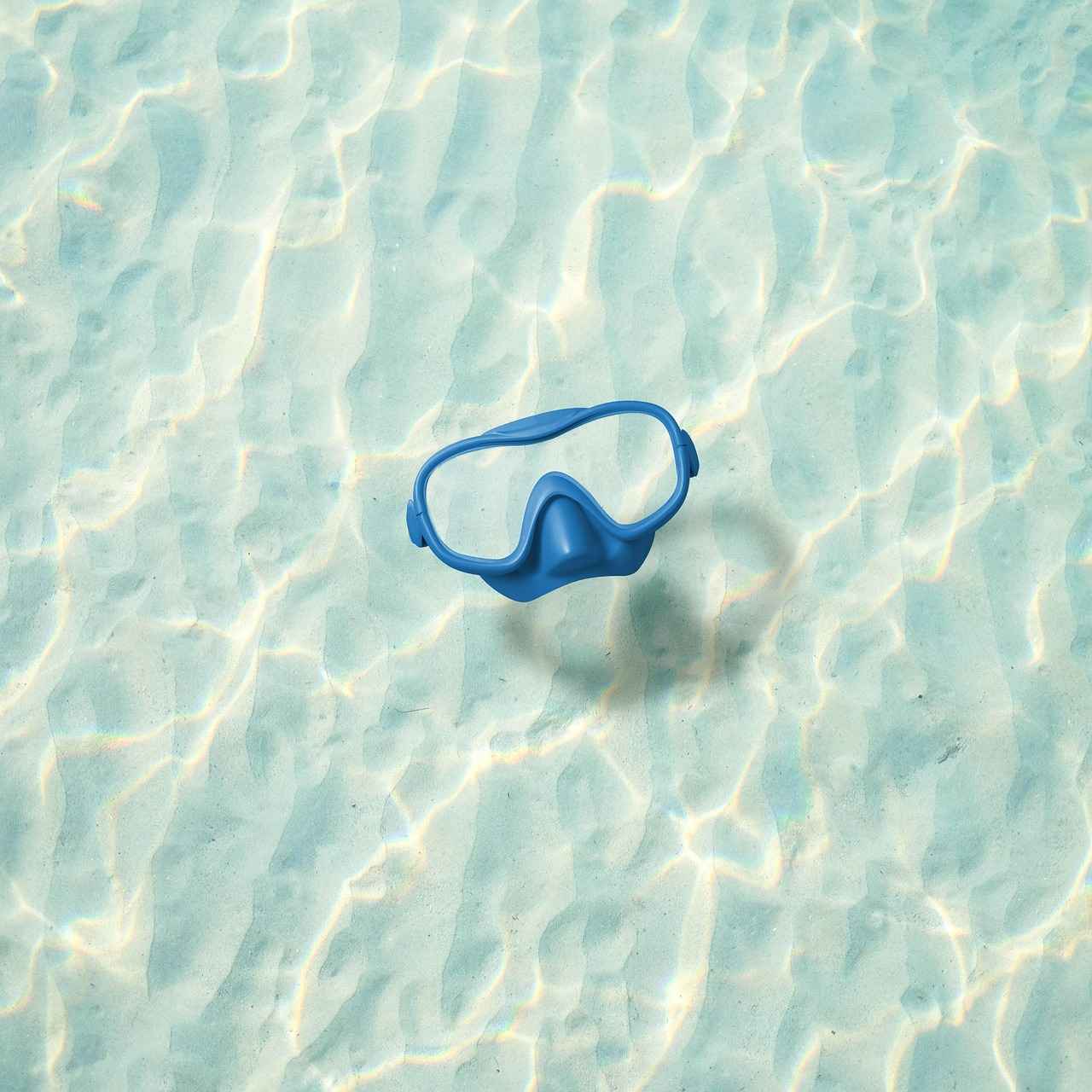
Expert Recommendations on Water Intake
When it comes to fasting for blood tests, understanding the role of water intake is essential. Healthcare professionals often emphasize the importance of hydration, as it can significantly impact the accuracy of test results. This section compiles expert insights and recommendations to guide patients effectively.
Hydration Guidelines during fasting can vary based on the type of blood test being conducted. Most healthcare providers agree that drinking water is generally permitted while fasting. Water does not contain calories and does not interfere with the metabolic processes that blood tests measure. However, it is crucial to adhere to specific recommendations to ensure optimal results.
Recommended Water Intake
- Patients are usually advised to drink 8-10 ounces of water before their blood tests.
- It is important to avoid flavored waters or any drinks containing sugars or additives.
- Staying hydrated can help in easier blood draws, as well-hydrated veins are more accessible.
Expert Insights
Experts recommend that patients listen to their bodies. If you feel thirsty, it is typically a sign that your body needs water. However, it is advised to limit water intake to avoid any potential complications. Some healthcare professionals suggest that drinking water in moderation can help maintain blood volume and prevent dehydration, which can lead to fainting or dizziness during the blood draw.
Special Considerations
While most patients can drink water, there are exceptions. For instance, certain tests may require complete abstinence from water, particularly those assessing specific hormonal levels or metabolic functions. Always consult your healthcare provider for tailored advice regarding your specific situation.
Potential Risks of Over-Hydration
Though rare, over-hydration can lead to water intoxication, which can dilute blood sodium levels and lead to serious health issues. Therefore, it is critical to maintain a balance and follow the guidelines provided by healthcare professionals.
Final Thoughts
In conclusion, while water intake is generally encouraged during fasting for blood tests, it is essential to follow expert recommendations. Staying hydrated can facilitate the blood draw process and improve overall comfort. Always consult your healthcare provider for personalized advice to ensure the best outcomes for your blood tests.
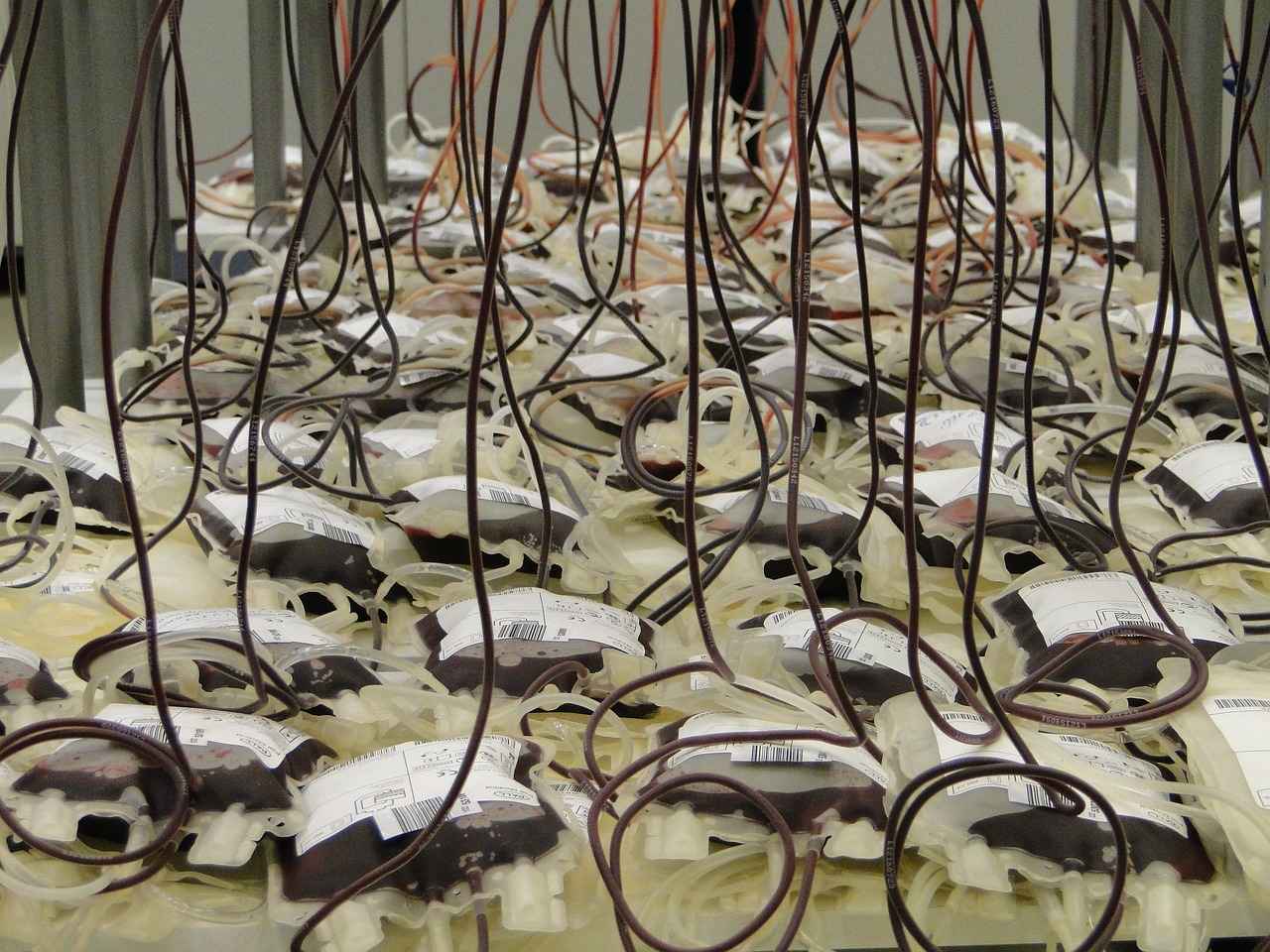
Common Misconceptions About Fasting
Fasting before blood tests is often surrounded by a cloud of misunderstandings and myths. Many patients find themselves confused about the requirements and implications of fasting, which can lead to anxiety or even improper preparation for their tests. This section aims to clarify some of the most prevalent misconceptions about fasting, providing patients with the factual information they need to approach their blood tests with confidence.
- Myth 1: You Cannot Drink Anything While Fasting
One of the most common misconceptions is that fasting means complete abstinence from all liquids. In reality, water is usually permitted during fasting periods. Staying hydrated can help facilitate blood draws and improve overall comfort. - Myth 2: Fasting is Only Required for Specific Tests
While it is true that certain tests, such as glucose and lipid panels, require fasting, many other tests may also benefit from it. Fasting can help eliminate variables that might skew results, making it a good practice for various blood tests. - Myth 3: Fasting Will Make You Feel Weak
Some people believe that fasting will lead to significant weakness or dizziness. While it’s normal to feel a bit hungry, most individuals can safely fast for the recommended period without adverse effects. Staying hydrated can further mitigate feelings of weakness. - Myth 4: You Should Skip Breakfast After Fasting
Another common belief is that one should skip breakfast after fasting for a blood test. However, eating a balanced meal afterward is important for recovery and maintaining stable blood sugar levels. - Myth 5: Fasting is the Same for Everyone
Fasting requirements may vary based on individual health conditions and the specific tests being conducted. Always consult with your healthcare provider to understand the fasting requirements tailored to your situation.
Addressing these myths is crucial for ensuring that patients are well-informed and prepared for their blood tests. Understanding the truths behind fasting can help alleviate anxiety and promote a smoother testing experience. Patients are encouraged to seek clarification from their healthcare providers regarding any uncertainties they may have about fasting protocols.
In conclusion, having accurate information about fasting can significantly impact the quality of blood test results. By debunking these common misconceptions, patients can approach their health tests with a clearer understanding and greater confidence.
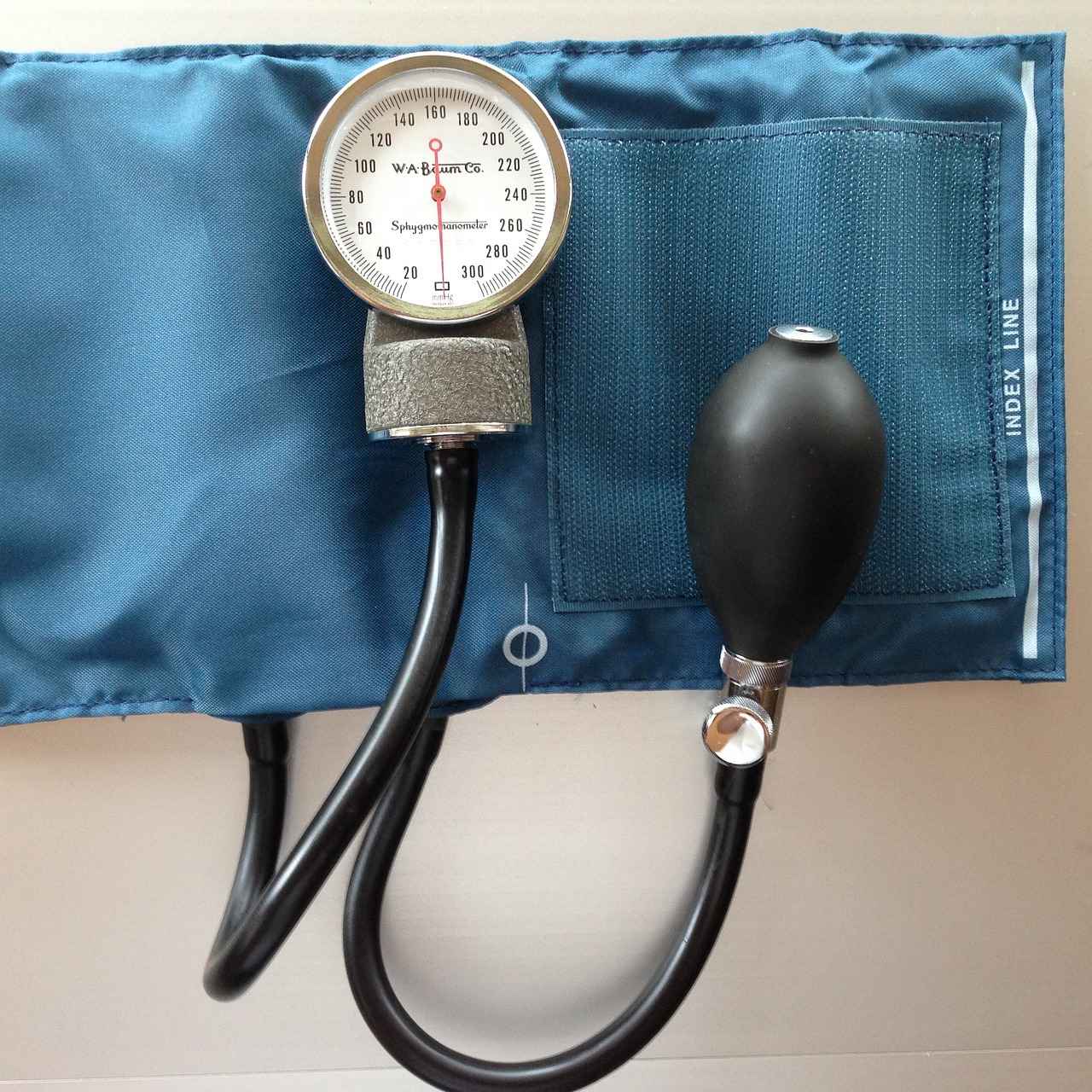
Preparing for Your Blood Test
Preparation is key to successful blood testing, as it significantly influences the accuracy and reliability of the results you receive. Proper preparation can mean the difference between a clear diagnosis and unnecessary follow-up tests. This section offers practical tips on how to prepare for a blood test, including essential fasting and hydration practices.
Before your blood test, it’s crucial to understand the specific requirements set by your healthcare provider. Fasting is often a common requirement, especially for tests such as glucose and lipid panels. Fasting typically means refraining from eating or drinking anything other than water for a specified period, usually between 8 to 12 hours prior to the test. This practice helps ensure that the substances in your bloodstream are at baseline levels, allowing for more accurate analysis.
Aside from fasting, hydration plays a significant role in preparing for a blood test. Drinking water is generally encouraged, as it helps keep your veins plump and makes it easier for the phlebotomist to draw blood. Dehydration can make veins constrict, making it more difficult to obtain a sample. Aim to drink a sufficient amount of water the day before your test and continue to hydrate on the morning of the test, unless otherwise directed by your healthcare provider.
- Follow Specific Instructions: Always adhere to any specific instructions given by your doctor regarding fasting and hydration.
- Avoid Alcohol and Caffeine: These substances can interfere with test results, so it’s best to avoid them for at least 24 hours before your blood test.
- Inform Your Doctor: If you are on any medications, inform your healthcare provider, as some may need to be paused before the test.
- Dress Comfortably: Wear clothing with sleeves that can be easily rolled up to facilitate the blood draw.
Additionally, consider scheduling your blood test for early in the morning. This timing can help minimize the discomfort of fasting and ensure that you can eat breakfast soon after the test is completed. If you have any concerns about fasting or hydration, don’t hesitate to reach out to your healthcare provider for clarification.
In conclusion, proper preparation for your blood test is essential for obtaining accurate results. By following the guidelines for fasting and hydration, you can ensure that your test results reflect your true health status. Remember, the effort you put into preparing for your blood test is a vital step toward effective healthcare management.
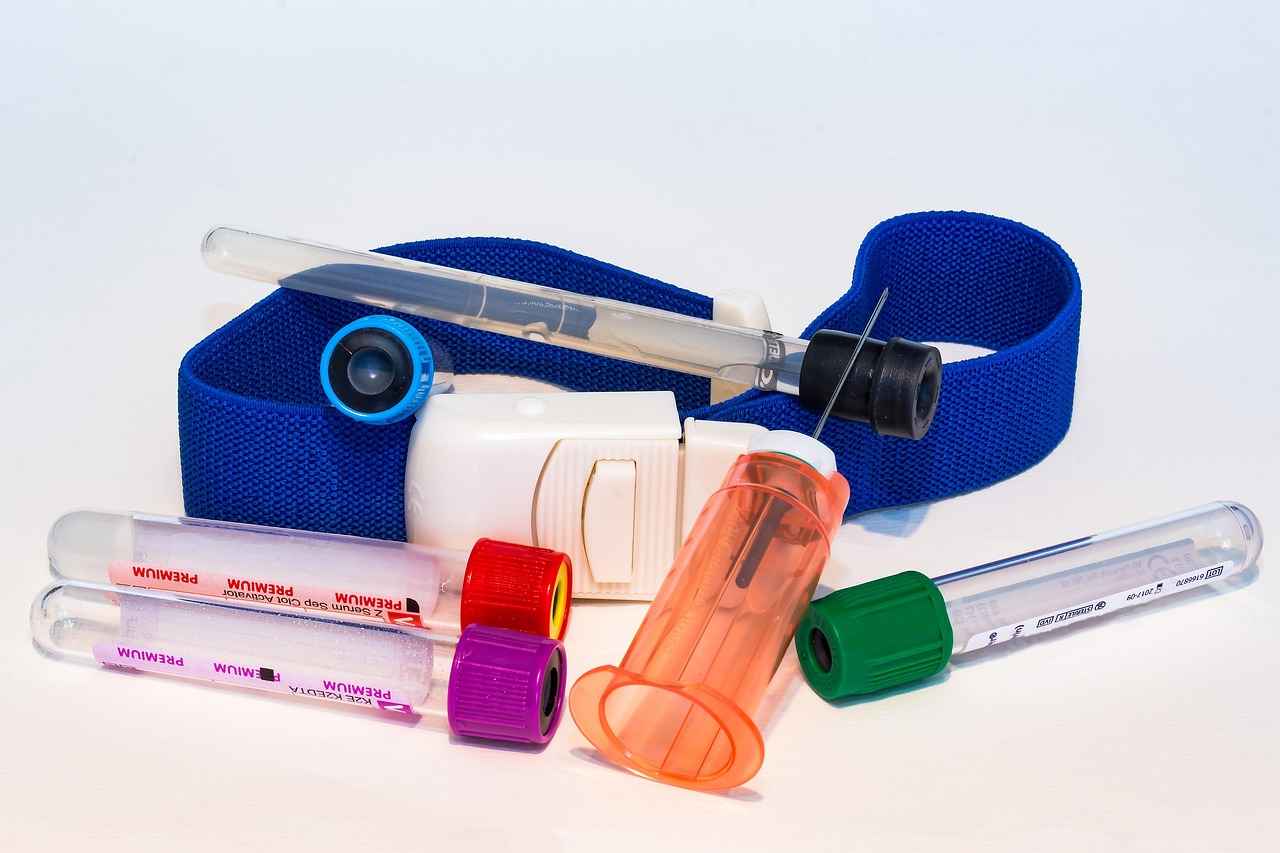
Conclusion: The Importance of Following Guidelines
Adhering to fasting guidelines is essential for achieving accurate blood test results. Many individuals may underestimate the significance of these protocols, but they play a crucial role in ensuring that healthcare providers can make informed decisions based on reliable data. This section highlights the importance of following medical advice and the potential consequences of neglecting fasting instructions.
When preparing for a blood test, the primary goal is to obtain results that reflect the true state of your health. Fasting typically involves abstaining from food and, in some cases, specific beverages for a designated period before the test. This practice helps to eliminate variables that could skew results, such as recent meals that may affect glucose or lipid levels. For instance, consuming food can lead to elevated blood sugar levels, which can mislead healthcare professionals in diagnosing conditions like diabetes.
In addition to fasting, hydration plays a significant role in the process. While many people wonder if they can drink water during fasting, it is generally permitted and even encouraged. Drinking water can help maintain hydration, making veins easier to locate for blood draws and reducing the risk of complications. However, it is important to consult your healthcare provider for specific instructions, as certain tests may have unique requirements.
Moreover, failing to adhere to fasting guidelines can lead to unnecessary delays in diagnosis and treatment. If test results are inaccurate due to non-compliance, patients may need to repeat the tests, which can prolong the time it takes to receive a correct diagnosis. This can be particularly detrimental for individuals with serious health concerns, where timely intervention is critical.
Healthcare professionals emphasize the importance of following fasting protocols as part of a comprehensive approach to health management. Patients are encouraged to communicate openly with their healthcare providers about any concerns or questions they may have regarding fasting. This dialogue can help ensure that patients understand the reasons behind fasting requirements and feel more comfortable with the testing process.
In summary, adhering to fasting guidelines is not merely a recommendation but a vital component of obtaining accurate blood test results. By following medical advice carefully, individuals can contribute to their overall health and well-being. This diligence not only aids in accurate testing but also fosters a better understanding of one’s health status, ultimately leading to more effective medical care.
Frequently Asked Questions
- Can I drink water while fasting for a blood test?
Yes, in most cases, drinking water is allowed and even encouraged while fasting for a blood test. Staying hydrated can help make the blood draw easier and improve your overall comfort.
- Does drinking water affect blood test results?
Generally, drinking plain water does not affect the results of most blood tests. However, it’s important to avoid any additives, like sugar or flavoring, as these can interfere with the accuracy of certain tests.
- How long should I fast before my blood test?
The fasting duration can vary depending on the type of test. Typically, a fast of 8 to 12 hours is required. Always follow your healthcare provider’s specific instructions for the best results.
- Are there any exceptions to drinking water while fasting?
While water is usually fine, there might be exceptions based on specific tests or medical advice. Always check with your healthcare professional if you’re unsure.
- What are the benefits of drinking water before a blood test?
Drinking water before a blood test can help keep you hydrated, making it easier for the technician to find a vein. It can also help prevent dizziness or fainting during the procedure.












